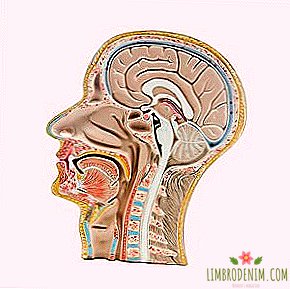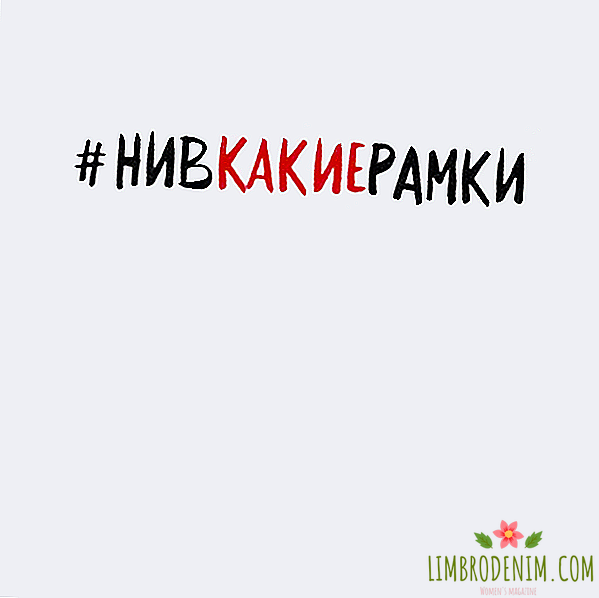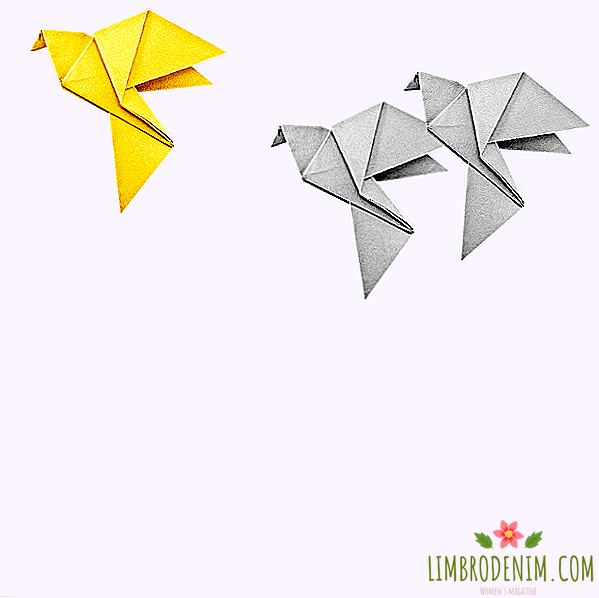Founder of "Media Udara" Tatyana Volkova about favorite books
IN BACKGROUND "BOOK SHELF" we ask journalists, writers, scholars, curators, and other heroines about their literary preferences and publications, which occupy an important place in their bookcase. Today, Tatyana Volkova, an independent curator and creator of the Media Udar activism festival and Fem Club platform, shares her stories about favorite books.

I can not say who exactly formed my habit of reading in childhood. I grew up in a big family, there were always a lot of books in the house, family members every night retired with books before bed, so everything happened by itself. I only remember that in my childhood I loved to read in the bathroom, and this habit still persists: this is my space for solitude and recreation.
Another space of solitude in my life has always been summer vacations in a village in the depths of the Tver region, during which often it was possible to make great literary breakthroughs. For example, in adolescence I experienced a period of fascination with psychology, Freudianism and post-Freudianism. The discoveries of the Swiss psychologist Carl Jung in the field of the collective unconscious have had a great influence, it seems to me, on my interest in the practices of the expansion of consciousness. One of the most recent village dives was F. Dostoevsky’s novel The Brothers Karamazov, missed in the school curriculum. A friend recommended it as “the first Russian psychological detective story”, the book was immediately bought at a local store and avidly read.
As practice shows, in Moscow such volumes of irrelevant literary travel are not available to me. Therefore, fiction as a means of distraction and escape from reality has gradually almost dropped out of my life, giving way to books that I need in current time, be it professional or personal life. In general, books have always been of an instrumental nature for me, they were a way of understanding the world and myself, getting new experience and expanding my horizons.
Books for me are always directly related to the life stage at which I am, his needs and tasks. When I started working with modern art, it was a wide range of books related to the history, theory and philosophy of modern art: it was difficult to identify specific authors, there were a lot of them, and they were associated with the need to fill in the gaps in education already in the process. Later, when I began to engage in activist art, I also had to master in the process a lot of information related to the history and theory of activism, the horizontal communication system, and recently - the feminist movements. I actively work with social networks and specialized publics that post links to sources: this gives you the opportunity to be in daily scrolling of relevant information. In general, now I mostly read e-books - it is environmentally friendly, accessible, it is convenient to take notes of them, which I usually do, and it is easier to use a dictionary if the book is in English.
In the process of transforming MediaUdar from a curatorial project into an open horizontal platform, I had to study a number of books, many of which appeal to the method of non-violent communication. It was developed by the American psychologist Marshall Rosenberg in the 60s of the last century, drawing on the humanistic philosophy of non-violent resistance of Mahatma Gandhi. It is important to say that the work on the horizontalization of the festival proceeded in parallel with the important personal transformations in my life. Practitioners of conscious communication have become for me the subject of close study - this is the point at which my personal interests intertwine with professional ones, illustrating the well-known feminist thesis "personal is political." I chose ten books that I have read recently and which are relevant to me today: literature with activist and feminist optics, as well as books related to the practices of awareness and non-violent communication.

Peter Gelderloos
"Decision Making in a Free Society"
I read this book during the preparation of the workshop on the consensus that we conducted last summer for the participants and participants of our newly formed horizontal feminist platform "Theme Club". We are talking about restructuring our own relationships and roles within the team, which we have been dealing with since the beginning of the horizontalization of the MediaUdar festival, that is, reformatting it from a curatorial project into a platform that is managed by a consensus working group. According to the book, consensus is a way of making decisions by active members of a group that is acceptable to everyone, taking into account the wishes of everyone. Moreover, if the decision is contrary to the ideas of the group, everyone has the right of veto.
Decision making by consensus takes time. The interest of each member of the discussion in its results is extremely important. Over time, the crisis stages become less and less, and the discussion takes less time, since a certain distribution of roles is built up, trust arises, more open communication, and the functioning of the system is debugged. Practice confirms this thesis: if we had read this book before, we would have been able to avoid many pitfalls in the so-called horizontal relationship.
Compilation
"Woman in culture and politics"
The collection was published on the materials of the conference "Woman in Culture and Politics" organized by the Rosa Luxemburg Foundation, which was attended by such feminists as Polina Vasilyeva, Maria Rakhmaninova, Bermet Borubayeva and others. The publication is illustrated with drawings by artist Victoria Lomasko. For me in this book is an important review of the modern Russian feminist agenda. Most of the participants in the collection refer to themselves as socialist feminism, I personally feel closer to queer feminism and ecofeminism, but unfortunately, we practically have no untranslated literature on them. The book as a whole, that in post-Soviet Russia with the illusion of gender equality, gender discrimination is so deeply rooted that not everyone is aware of such things as women's double working hours (profession and reproductive work), sexism, the "ceiling" in wages and the problem of sexual violence .
Catalog of the exhibition "And - art. F - feminism. Actual dictionary"
The project of our partners, important in the quality of research of modern feminist space in Russia. It was conceived as an experiment in creating vocabulary, interpreting the relationship of art, feminism, society, feminist criticism and practice. The exhibition's organizers, Marina Vinnik and Mikaela, and curator Ilmira Bolotyan held an open call, in which they urged everyone who consciously uses feminist strategies in their artistic and / or activist activities to take part in the exhibition.
Following the results, the “Actual Dictionary of Feminism” was created, consisting of several dozen articles, an exhibition and a catalog. For me personally, such dictionary articles as "Awareness" and "Physicality" turned out to be important, because this is exactly the way I came to feminism, through awareness of myself, my mind and body, subconscious programs and social stereotypes that we lead.
Nikolay Oleynikov, Kety Chukhrov, Oksana Timofeeva, Gray Violet, Kirill Medvedev
"Sex oppressed"
We made a presentation of this book in the framework of "Media Udara" a few years ago, but only recently I finally read it completely and with great enthusiasm. The "Sex of the Oppressed" collection includes four conversations about the sex of the artist Nikolai Oleinikov with friends and left-wing figures: philosophers Katie Chukhrov and Oksana Timofeyeva, transgender activist Gray Fioletov, poet Kirill Medvedev. Of course, the context of discussions is much broader than the personal life of these authors, and it inevitably comes to gender stereotypes, internal censorship, the concepts of norms and perversions in modern society.
I find it difficult to write about this book better than Kohl did in the introduction to it: "Sex is a phenomenon that has always been between oppression and liberation, between creativity and commerce, between coercion and choice. Sex is deeply intimate. Sex is broadly intimate public. So is it possible and does it make sense to talk about sex politically? Are sex and politics connected? Why is sex important to us? Why is it important to have time to ask a question here and now? "
Tristan Taormino
"Opening relationships. Guide to creating and maintaining non-monogamous relations"
The study of gender stereotypes and relationship patterns unexpectedly led me to a book that I even translated theses from English and published on the festival website, because it has not yet been translated into Russian. The American writer, director and radio host Tristan Taormino begins her book with the words: "I dedicate it to everyone who has the courage to live and love outside the matrix." In her opinion, the unspoken expectations of monogamy that one partner can completely satisfy all the physical, intellectual, and spiritual needs of another forever are often unrealistic.
People who "open" relations (transform monogamous relations into non-monogamous, that is, into relations with several partners with the knowledge and consent of everyone), take an important step - they decide to be honest with themselves and others. They believe that it is possible to have relationships with several partners and to do this ethically and responsibly. Taormino describes the history of the development of the traditional European family within the framework of the patriarchal tradition, which led to the liberation women's movement and the struggle of minorities for their rights, gives a lot of statistics and cases, which she studied.
In my opinion, this book is useful for all types of relationships, both non-monogamous and quite traditional, as it is about how to be honest with yourself and others, respect mutual agreements, how important it is to hear each other and be willing to compromise. The author gives specific recommendations, including from the arsenal of non-violent communication practices, such as the ability to take responsibility for your own states, how you react and feel yourself, skills to work on conflicts, respect for the feelings of each person, his needs and personal space.
Leonid Grimak
"The reserves of the human psyche"
As a continuation of the study of our internal programs and patterns, a book that I accidentally found on a bookshelf in my parents' cottage turned out to be unexpectedly useful. Soviet medical doctor Leonid Grimak in a popular form describes different schools and practices of working with the body and mind and analyzes them through the prism of modern science.
In recent years I have been fascinated by yoga and meditation, and I was interested in a scientific approach aimed at their demystification and logical explanation. Studies by Soviet scientists have shown that the state of the muscular system and the entire musculoskeletal system is closely related to the tone of the cerebral cortex - this explains the effect that physical exercises have on the mental state. The book also analyzes the ability of a person to create a mental image that underlies meditation, hypnosis, autogenic training, and other personal self-regulation methods. These practices are based on one particularity of the human psyche - the ability to distract from reality and be guided by the actualized way (belief, idea).
A meditator learns to keep attention on his internal processes, looking at them as if from the side. Gradually, such detachment appears in the normal state: for example, some kind of emotion appears (anger, irritation), but instead of succumbing to it immediately, you fix its occurrence and stop this impulse. Anger does not absorb your attention, as there is always a part of you that quietly watches what is happening inside and you have the opportunity to resist this feeling.
Stanislav Grof, Christina Grof
"Spiritual crisis. When personality transformation becomes a crisis"
In the book Reserves of the Human Psyche, Grimak repeatedly refers to experiments with the expansion of Stanislav Grof’s consciousness. The figure of an American psychiatrist of Czech origin, one of the founders of transpersonal psychology and pioneers in the study of altered states of consciousness, has long interested me - I found his book on the net.
Grofy collected in their collection articles of psychologists, psychiatrists and spiritual teachers who wonder about the nature of the spiritual crisis, about the relationship between spirituality, madness and integrity. The sixties generated a wave of interest in the study of consciousness - from the revival of ancient and eastern spiritual practices to experimental psychotherapy and experiments with psychedelic substances. Historically, the breakthrough in this area was the work of the Swiss psychiatrist Carl Jung, whom I was fond of in my youth and who introduced the concept of the collective unconscious.
Jung discovered that the human psyche has access to universal images and motifs that have been found in mythology and culture throughout the world throughout human history. In the 1970s and 1980s, this area of knowledge was significantly expanded by studies on the effects of psychedelic substances, as well as experimental psychotherapeutic techniques and all kinds of spiritual practices - from gestalt therapy to yoga and meditation.
Jean Ledloff
"How to raise a child happy. The principle of continuity"
Programs, behavioral patterns and communication inherent in us interest me not only in the public and inter-gender sphere, but also as a mother in relations with children. Although this book is much wider: it is not only about children, it is about systemic failure in modern civilization, which violates the basic principle of its development - the principle of continuity.
Anthropologist Jean Ledloff spent two and a half years in the depths of the Latin American jungle together with the Ecuana Indians and made sure that happiness is the natural state of everyone, but we lose this well-being in modern culture. This, by the way, is very much in tune with the ideas of ecofeminism, which draw a connection between militarism, sexism, classicism, racism, and environmental destruction.
The “right” is the centuries-old human needs as a representative of the species, the expectations and development trends set in it, the repeated experience of the ancestors. Mankind has forgotten these correct instincts, replacing them with the achievements of progress - non-evolutionary changes, the "intelligence versus instinct." When continuity is disturbed, the mind begins to contradict instincts and disables the balancing mechanisms, as a result, the basic human need for unconditional love and acceptance is not satisfied - chronic conditions such as increased anxiety, the need for constant self-affirmation, and so on arise.
At the subconscious level, we do what is expected of us, even if the mind understands that it is not necessary. Ledloff introduces the concept of "axiom of innate correctness and sociality", on the basis of which children do not need to constantly be formed and "trimmed", causing distortions in the integrity of their development, but it is necessary to provide an opportunity for the harmonious growth of all abilities that are initially incorporated.
Irina Mlodik
"A book for imperfect parents, or Life on a free topic"
Conscious parenting is primarily work on oneself. It's like on a plane - put a mask on yourself first and then on the child. Trying to provide children with harmonious development, we are forced to change ourselves, understanding that we inevitably lay down patterns of behavior with which they will unconsciously follow their entire lives. The experience of motherhood gradually led me to a significant reassessment of values and many changes in life.
In the book of Irina Mlodik, it is clear from the title that the author is trying to help parents accept themselves and realize the inevitability of the fact that something in raising a child will not be what it seemed, was read, listened to. In upbringing, it is important to allow yourself to be yourself and the child as it is: alive, imperfect, trust yourself and him, even when mistakes are made, believe in his and his wisdom, strength and freedom. To stop focusing on external evaluation, not to “pass” yourself and the child to an imaginary “third” (“what will people say?”).
All this is quite consonant with the ideas of Ledloff, as well as the concept of non-violent communication Rosenberg, to which Mlodik also refers in her practical advice on resolving conflict situations: she writes about the principles of non-judgmental relationships, creating feedback, avoiding repressive vocabulary. Despite the fact that these practices were already well known to me, many tips turned out to be very useful, such as, for example, using the “palette” is impossible, reaching agreement on the basis of developing an alternative solution, and so on.
Andrew Solomon
"The Irony Tower. Советские художники во времена гласности"
Книга американского писателя и журналиста Эндрю Соломона посвящена советскому художественному сообществу эпохи перестройки 1980-1990-х годов. Соломон пишет о своём личном знакомстве с главными героями неофициального искусства того времени и о событиях, свидетелями которых он стал. Among them - the formation of art squats, the beginning of the formation of art institutions, the opening of borders and displays of Soviet non-conformism abroad, the first visits of our artists abroad. Solomon colorfully describes the challenges that our artists underwent, the opportunities and challenges they met abroad and the changes that led them.
It was very interesting for me to read this book not only as a practicing art historian, but also as an acquaintance personally with many of the defendants, to see their creative and life path in volume. It seems to me that this book acquires additional relevance due to the fact that we are now in a mirror-symmetrical situation, when opportunities around us, on the contrary, are narrowing and we are gradually returning to the times of the Iron Curtain.




